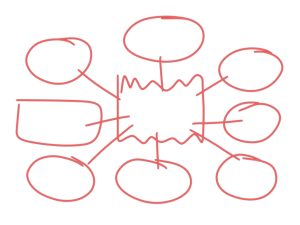Reading just 20 minutes a day provides incredible benefits to your child—some academic and some personal. They will gain a rich vocabulary, perform better on tests, and develop a lifelong love of learning.
Remember, it’s never too early or too late to start this beneficial habit. Whether you’re reading picture books with your young child, exploring chapter books with your tween, or discussing complex novels with your teen, those 20 minutes a day can make a significant impact.
Create a plan with your children that includes:
- The time and place where reading will take place. The familiarity of time and place increases the likelihood that this daily reading will develop into a habit. It could be after dinner, before bed, or early in the morning—whatever works best. The important thing is to stick to this schedule as much as possible. As part of the decision about time and place, decide what happens if there’s a conflict one day. For example, you might decide that there can be one “skip” day. Or you might want to find another time for the daily reading that day. Knowing in advance what your rule is helps to avoid arguments. If you or your child has a lot of conflicts throughout the week, consider a different time/place.
- Who is included in reading time. The likelihood of success will increase if you and other family members also participate in the daily reading activity. It doesn’t feel like homework for your child if most/all participate. Instead, it becomes fun family bonding time.
- What should be done during reading time. Well, reading of course! Get your kids involved in the decision about what to read. Just keep in mind that they shouldn’t pick something that is too hard or too easy. A just-right fit helps them grow the most. Beable can help with shorter passages that match their level. MetaMetrics’s Find a Book can help with books that match their level.Depending on where your kids are with their reading skills, you might change what you do during reading time:
- If they aren’t yet reading fluently, consider read-aloud time—you read to them, or if they are ready for it, they read to you.
- If they are strong readers, you might want to take a few minutes for discussion at the end. What did they read? What did you read? What are everyone’s thoughts about it?
- If you think this will work for your family, pick a play to read. Each family member gets a part, and you act out the play. You can structure it as read-aloud time.
- How you will celebrate. Celebrations are always fun and will motivate your child or your family to read more. Celebrations can be small, like a recognition ribbon for completing a book, or a bit larger, like an outing to the park for earning 5 recognition ribbons. Make sure your child is part of making the decision on what the celebration will be. That creates the greatest excitement for them.
So go make a plan with your child. It will change their lives!








